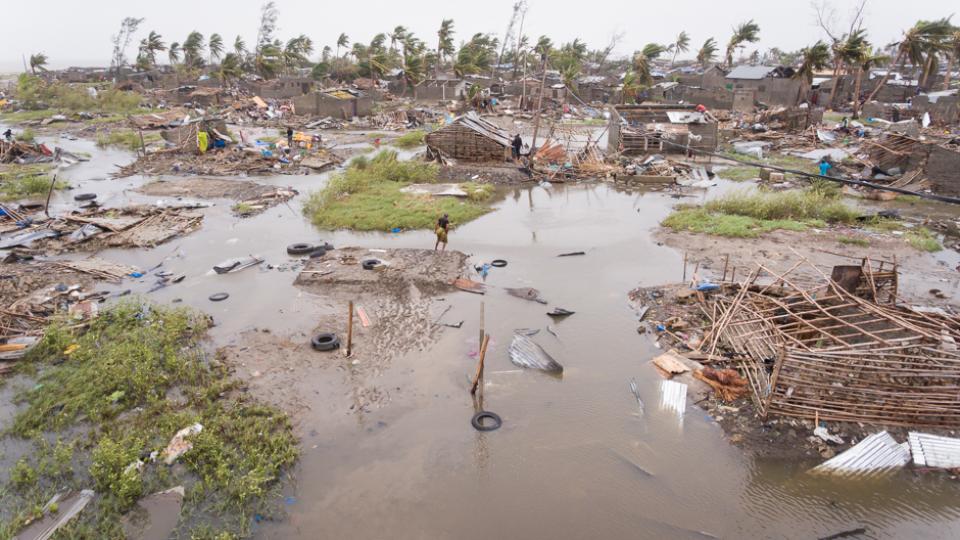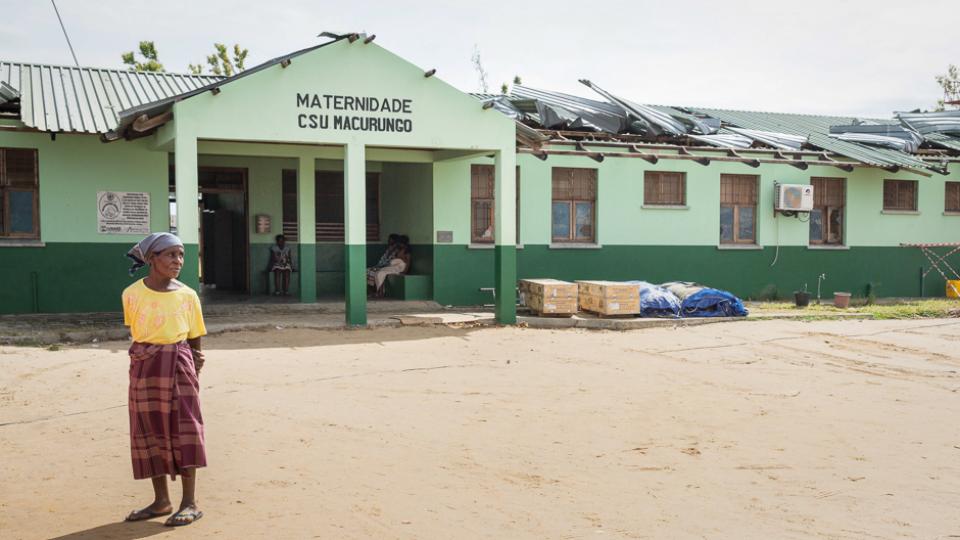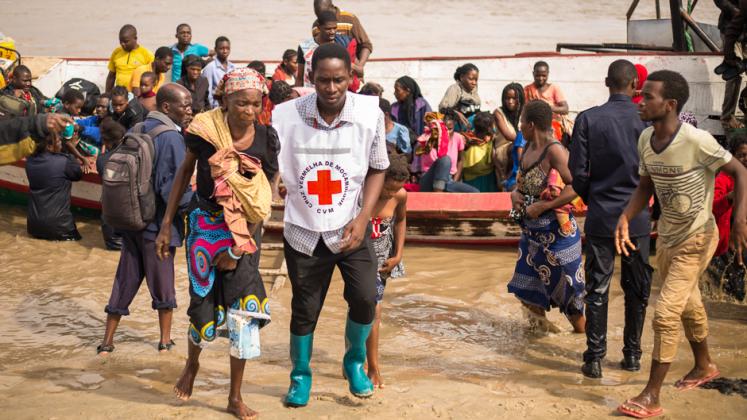This is the first article in a United Nations University Migration Network series that explores the interrelations and acute challenges of migration, climate change, and COVID-19. As a build-up to International Migrants Day on 18 December 2020, the series examines these connections at local and global levels, highlights impacts on migrants, and provides evidence-based insights for United Nations member states, governments, and policymakers.
•••
Climate-related migration and its implications for health is a hot topic in the current discussion on the impacts of climate change. However, despite many projections and forecasts, there is still no consensus on the magnitude of such population movements and how these movements impact migrants’ health. Nevertheless, low-income regions, such as sub-Saharan Africa (SSA), will likely experience the highest mobility response. Their economies rely heavily on environmentally-sensitive activities such as agriculture, while their unfavourable socio-political and demographic context also spurs movement.
As such, climate change could further impact sources of income, further deteriorate living conditions, increase conflict over scarce resources, and limit access to health services in SSA. Eventually, this could become a driver for migration, often as a strategy of last resort, or as an adaptive health-seeking response. The implications of COVID-19 may add an extra layer of vulnerability on SSA’s communities once mobility restrictions are lifted.
Continuous efforts are made to understand the climate change, migration, and health nexus in and beyond SSA. Still, many mechanisms remain underexplored or misunderstood, examples of which are migration to sites where climate change imposes particular health risks, immobile populations living in sites of climate risk with associated health consequences, and migration as a response to climate impacts while safeguarding health and well-being. As a result, there are calls for an integrated research approach including bioscience, (social) health sciences, and economics to connect data, methods, and expertise. This could lead to a more comprehensive understanding of these patterns of migration.
In addition, a precautionary shift to ‘climate-resilient and migrant-inclusive health systems’ is urged to accommodate affected communities. Health facilities in SSA and many low-income countries suffer from understaffing, geographical misallocation, and inappropriate skill mix. Exploring the attribution of health care in climate-related migration can increase understanding of the complexity of migration patterns, and can better inform the development of human rights-based health governance to ultimately strengthen sub-national and national health systems in and beyond SSA.

Primary caregivers and family physicians are currently underrepresented in climate-related migration and health literature, yet their intersectoral position within the health system and their central role in local communities make them excellent information sources to discuss the role of health care in the nexus.
Therefore, with an interdisciplinary research team from Ghent University and SSA partners, we explored their perspective on this topic during a qualitative study in SSA. This revealed complex and continuous feedback mechanisms between climate change, migration, health, and health care. A family doctor from Mozambique, for example, explained how 2019’s Cyclone Idai — which had catastrophic outcomes in Malawi, Mozambique, and Zimbabwe — set in motion a cycle of events affecting people’s lives and further weakened the region’s vulnerable health system:
“We’ve had cyclones before, but this one was really horrific. What pains me is the government did nothing about warning people to move to higher, safer grounds. The cyclone struck down the roads and people’s houses were swept [away] overnight, some communities vanished completely and … bodies could not be retrieved… [there was] a lot of anxiety and depression amongst relatives in [countries] with very weak health system[s].
To help those people was not easy. We [have] a high prevalence of HIV and some whose homesteads were swept away did not have access to their antiretroviral medication. The government took too long to respond … people [did not have access to] clean water, which means a whole lot of water-borne diseases coming from that place. My main worry is it is going to take a long time before the infrastructure is repaired and the clinics are revived. What if another catastrophe hits the same area? You can imagine people migrating from that region to [another] one. How is that health system going to cope? There [will] be infectious diseases arising from that. And we have lost a lot of doctors, and also they leave the country to look for greener pastures.”

To address the health (care) impact of climate change and (climate-induced) migration in a comprehensive way, the Expert Panel on Effective Ways of Investing in Health, advising the European Commission, calls for a more intersectoral approach: “Migration (and refugee-crisis), climate change and capacity building (for healthcare, education, food production …) in the global South, are strongly interrelated. EU policy could address these issues in an integrated and more comprehensive way, looking at push- and pull-factors, socio-economic and ecological drivers.”
For example, intersectoral emergency response teams should better integrate family physicians and government medical officers, since they interact closely with communities of greatest need. Capacity-building for non-governmental organisations (NGOs) could also improve responses in crisis situations where the health system is in shock. Occasionally, local organisations on the ground are better prepared and can respond more quickly, especially to facilitate community participation (e.g. community-level interventions such as tree-planting to counteract desertification). Health centres could work with NGOs to be models of good practices, such as growing crops, planting trees, regulating water use, and recycling waste. Furthermore, fairer political and trade partnerships with the global North, alongside ethical agricultural and food production policies, form a precondition for SSA to be able to cope with the implications of future climate crises. Finally, it goes without saying that high-income countries should, meanwhile, take up their unquestionable responsibility to reduce greenhouse gas emissions urgently and drastically.
Suggested citation: Charlotte Scheerens, Ilse Ruyssen. "The Climate Change, Migration, and Health (Care) Nexus: Implications for Low-income Regions," United Nations University, UNU Centre, UNU-CRIS, 2020-11-20, https://unu.edu/article/climate-change-migration-and-health-care-nexus-implications-low-income-regions.



